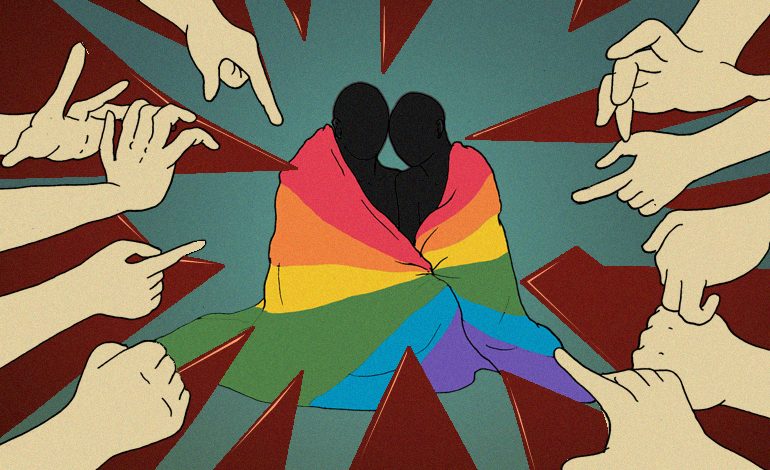French TV Series Gives a Glimpse of Second Wave Feminism in the Country

How would you picture a workplace establishment of secret agents in France in the 1960s?
For Jean-François Halin, Claire Lemaréchal, and Jean-André Yerlès, it would be like their 12 episodes TV series, Au Service de la France. In the midst of political turmoil, having just gotten through the World War II and shifting the mode into Cold War, this French drama comedy brings something fresh and deeply cultural in every episode. From French colonies demanding independence to the different understanding of “political scandal” between the French and the Americans – all for your entertainment.
One of the episodes of the intricate socio-political series is titled “Une Femme Moderne” (a modern woman), which burrows into the state of women in the 1960s. The period was also counted as the beginning of the second wave of feminism in France that first grew out of Simone de Beauvoir’s famous work The Second Sex.
The episode starts with the Colonel addressing everyone in the meeting room as “Messieurs” (gentlemen), ignoring the presence of a Madame Clayborne in the room. This could be seen as allusion to the ingrained sexism of French language, where the masculin third person plural pronoun “ils” would be used to refer to a group of mixed-gendered people (even if there are 10 thousand women and 1 man). It also illustrates that although women already have the rights to work (without needing their husbands’ permission) in that era, they are still not being taken seriously in the workplace.
In the episode, everyone except Clayborne makes the shortlist to become the assistant (and also future) general director. In one of the scenes, the male elites Jacquard, Moulinier, and Calot laughed at the idea that she could be shortlisted. Though women may hold the same position as men, they are not equal to male in workplace. This is leftover pro-natalist thinking during the baby boom era that the place for women were at home with their babies, not at work. That kind of thinking was further preserved by the government’s incentive to push women, especially young couples, to have a family and boosts France’s population after World War II.
But it wasn’t just the men. Marie-Jo who works as a secretary, a position mostly occupied by women in the bureau along with administrative positions in the ‘60s, shows that she is offended when Merlaux calls her “une femme moderne,” saying she actually wants to have a family and be a mother.
Merlaux is actually having a problem with his girlfriend Sophie. Sophie says her mother has been pestering her to meet him ever since she saw them coming out of the cinema together. Seeing this as an opportunity to become closer to Sophie through her parents, Merlaux makes a blunder when he remarks that it means she is respectable. His old-fashioned views leaves his girlfriend baffled. A young woman, Sophie represents the up and coming second wave feminism, which would only start to gain traction politically in May 1968 during a series of student protests.
Merlaux also asks his colleague Jacquard what he thinks of modern woman. Jacquard responds by asking back if Merlaux wants to take care of the babies while his wife goes to work.
“Qu’elles voteront dans l’élection?” You want them to vote in the election?
When Merlaux responds that women already have the rights to vote, his colleague shots back: “Et vous croyez que les femmes sont plus hereuse pourtant?” And you believe they’re more happy with that?
To understand the context of this line, we need to look at teh feminist movement in the French history up to that time. After French women gained voting rights in 1945, the ballots weren’t immediately swarmed by women as the suffragettes had expected. It was only 20 years later that the women started to dive into politics, thanks to the May ’68 events.
At last, Clayborne puts an end to his suffering, suggesting that he tells her about his feelings for her, “Ça, c’est moderne.”
Clayborne’s brave, confident, quick-witted, and powerful character is the embodiment of the term “une femme moderne” of that period in France. But the term was not immediately welcomed by everyone, both women and men. Some women fear of being stamped as bad mothers or rebelious womans, as Mary-Jo’s character has implied. The men claim that modern women deny their true nature as a stay at home mothers.
Alas, Clayborne eventually shows the men what women are capable of after she survives an attempted attack by a skilled hitman.
Her feat won the admiration of her sexist male colleagues, including Calot, who proclaimed: “Cette femme est un homme!” That woman is a man.
*Au Service de la France, now in its second season, can be found on Netflix.
Lathifah Indah is a French literature student from the far-away land of Padjadjaran. She wanted to be an activist, but decided that it was too extroverted a path for her, and changed lanes into an essayist.






















